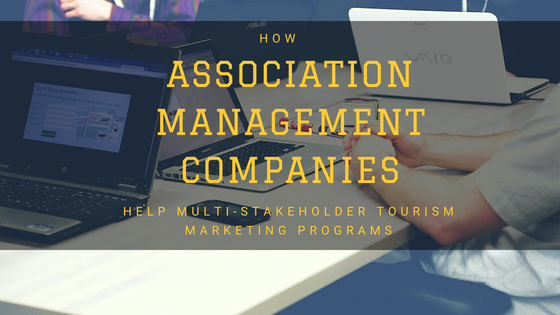Association management companies (AMCs) are dynamic and innovative entities that provide nonprofit organizations with the expertise, staffing, and resources they need to effectively manage their day-to-day operations and achieve their long-term goals. These for-profit businesses are purpose-driven and business-led, tailoring their management solutions specifically to the needs of the non-profit community. By leveraging shared resources and best practices, AMCs offer their clients flexibility, agility, and financial advantages that can drive growth and success.
The Purpose and Expertise of AMCs
AMCs are dedicated to serving the diverse needs of professional societies, trade groups, not-for-profits, and philanthropic organizations. They deliver high levels of expertise and accountability, allowing associations to increase their value and relevance to their members. With a wealth of association management experience and proven best practices, AMCs bring a broad and substantial knowledge base to their clients. By managing multiple associations, they have the unique advantage of a diverse skill set that can be applied to various challenges and opportunities.
AMCs offer a wide range of services that can be customized to meet the specific goals of their clients. Whether it’s full-service management or specific services like strategic planning, membership development, or communications, AMCs have the means and capabilities to deliver exceptional results. They excel in disciplines such as membership, marketing, finance, and more, ensuring that their clients receive tailored solutions that drive growth and success.
Models for Working with AMCs

There are two primary models for organizations to work with AMCs: full service and outsourced services. Each model offers distinct advantages and allows nonprofit organizations to choose the approach that best suits their needs.
1. Full Service Model
In the full-service model, AMCs serve as the organization’s headquarters, providing experienced executives who work in collaboration with other AMC staff resources. These executives manage day-to-day operations, support members, and become the public face of the organization. With expertise in critical areas of association management and operations, they ensure the success of their clients.
One of the key advantages of the full-service model is enhanced buying power, improved staff efficiency, and reduced overhead costs. AMCs deliver turnkey management for all operating disciplines, including membership, marketing, policy development, legal services, risk management, and more. They handle daily operations such as staffing, office space, equipment, contracts, technologies, and member services. By consolidating these services, AMCs provide their clients with streamlined and cost-effective solutions.
2. Outsourced Services Model
The outsourced services model offers organizations scalability and flexibility. AMCs serve as an extension of the client’s staff, providing specialized expertise in association management services. This model allows organizations to access staff and resources as needed, ensuring that they have the right support at the right time.
Outsourced services offered by AMCs include executive, administrative, and financial management, strategic planning, membership development, public affairs, lobbying, education and professional development, statistical research, meetings management, and marketing and communication services. By outsourcing these functions, organizations can focus on their core mission and strategy while relying on the expertise of the AMC to meet their specific needs.
The Benefits of Working with AMCs

Working with an AMC offers numerous benefits and advantages for nonprofit organizations. Let’s explore some of the operational, financial/business, and long-term benefits that organizations can expect when partnering with an AMC.
Operational and Staffing Benefits
AMCs provide customized staff and services tailored to the unique needs of each client. By leveraging their expertise, AMCs deliver a broad spectrum of knowledge and experience that ensures effective day-to-day management. They improve staffing and resource allocation, allowing organizations to optimize their operations and allocate their resources strategically.
AMCs bring proven best management practices, best-of-class resources, and technologies to their clients. By implementing these practices, organizations can enhance their operations and stay ahead in a competitive landscape. With AMC support, organizations can benefit from the professionalism and responsiveness of staff, resulting in greater member satisfaction.
Financial and Business Benefits
AMCs offer financial and business advantages that can make a significant impact on the bottom line of nonprofit organizations. By leveraging shared resources, AMCs provide efficiencies that lead to cost savings. Their buying power allows for better negotiation of contracts and procurement of services, resulting in reduced business risks.
Moreover, by partnering with an AMC, organizations can free themselves from the burden of daily operations. Boards can maintain their focus on mission and strategy, while the AMC handles the day-to-day management. This integration of innovative strategies and ideas can drive growth and success in the long run.
Long-Term Benefits
The long-term benefits of working with an AMC are invaluable for nonprofit organizations. The expertise and support provided by AMCs enable associations to adapt and thrive in a rapidly changing environment. By staying ahead of industry trends and implementing innovative solutions, organizations can maintain their relevance and deliver value to their members.
AMCs offer scalability, allowing organizations to accommodate growth or contraction over time. As the needs of the organization evolve, AMCs can adjust their services to ensure a seamless transition. This adaptability ensures that the organization’s management needs are met at every stage of development.
Conclusion

Association management companies play a vital role in driving growth and success for nonprofit organizations. Their purpose-driven, business-led approach provides tailored solutions that meet the unique needs of professional societies, trade groups, and philanthropic organizations. Whether through full-service management or outsourced services, AMCs offer expertise, flexibility, and financial advantages that can transform organizations and enhance their long-term viability.
By partnering with an AMC, nonprofit organizations can benefit from operational efficiencies, improved staff management, and access to a broad spectrum of expertise. The financial and business benefits, such as reduced costs and improved buying power, can have a significant impact on the organization’s bottom line. Moreover, the long-term benefits of working with an AMC, including greater member satisfaction and the integration of innovative strategies, ensure that organizations can adapt and thrive in an ever-changing landscape.
In conclusion, AMCs are key partners for nonprofit organizations, providing the resources and expertise needed to drive growth, increase value, and achieve long-term success. By harnessing the power of an AMC, organizations can focus on their core mission and strategy while benefiting from the support, knowledge, and innovation that AMCs bring to the table.
